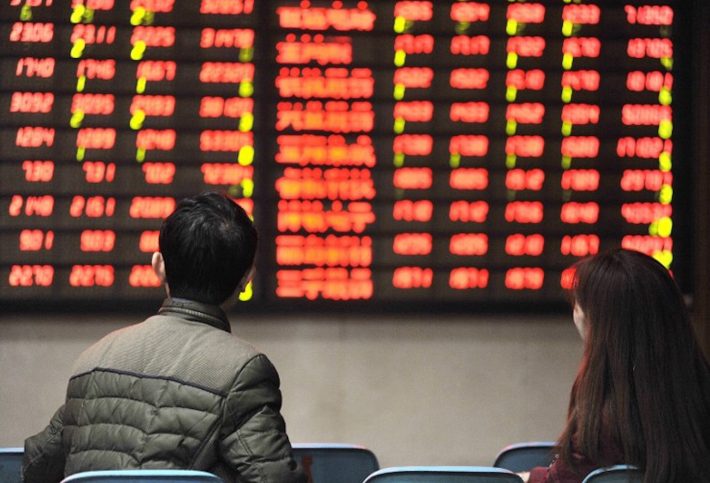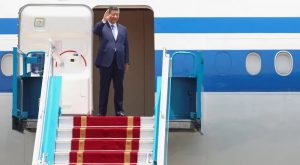Two of China’s biggest stock exchanges have been pressing large mutual funds to restrict stock selling in what is starting to become an annual ritual, sources have revealed.
Three sources told Reuters that authorities have sought, for the second year in a row, to calm markets at the start of the year, as China heads toward a tricky period dealing with the second Donald Trump Administration.
At least four large mutual funds received calls from the Shanghai and Shenzhen stock exchanges on December 31 and January 2 and 3, asking them to buy more stocks than they sold each day.
ALSO SEE: China Scrambles to Bolster the Yuan and Sliding Markets
The guidance came as Chinese stocks kicked off 2025 with deep losses on worries that incoming US President Donald Trump wild impose hefty tariffs on Chinese goods, heaping pressure on an already sluggish economy.
Those funds could sell stocks, but if total selling values exceeded purchases, they would need to add more positions soon to fill the gap, as per guidance from the exchanges, one source said.
“Such guidance has a tendency to become regular,” the source added, noting similar requests made around the start of last year.
The sources were not directly contacted by the exchanges but are aware of the discussions. They declined to be named due to the sensitivity of the matter.
The Shanghai and Shenzhen stock exchanges did not immediately respond to a Reuters request for comment.
CSI-300 down 5% last week
China’s blue-chip CSI 300 Index slumped 2.9% on the first trading day of 2025 – its worst New Year start since 2016.
The benchmark lost more than 5% last week.
With two weeks before Trump begins a second US presidency, his threats of big tariffs on Chinese goods have rattled the yuan and driven mainland bond yields and stock prices down.
The guidance to investors from the exchanges is among many moves authorities have taken to stabilise sentiment.
Among measures to support capital markets over the past few months, authorities have rolled out swap and relending schemes totalling 800 billion yuan for stock purchases.
Over the weekend, the Shanghai and Shenzhen stock exchanges said they had recently met with foreign institutions to further boost investor confidence. The annual Central Economic Work Conference in December highlighted stabilising stock and property markets as the main priority in 2025.
Chinese stocks marked their first annual gain since 2020 last year, closing up 14.7%, although most of the gains were driven by a brief sharp rally following the announcement of a stimulus package in September.
The securities exchanges made similar appeals to funds early last year when Chinese stocks slumped to five-year lows.
- Reuters with additional editing by Jim Pollard
ALSO SEE:
Millions of China’s State Workers Get Pay Rise to Lift Economy
China Unveils Bond-Funded Initiatives to Boost Sluggish Economy
Top Carmakers Continue China’s EV Price War For a Third Year
China Plans Record $411 Billion Bond Issuance in 2025: Sources
New US Probe Announced Into China’s Legacy Chips
China Central Bank ‘to Allow a Weaker Yuan’ as Trade Risk Rises
China’s Central Bank Deflates Long Rally in Government Bonds
























